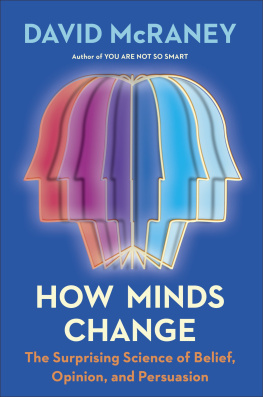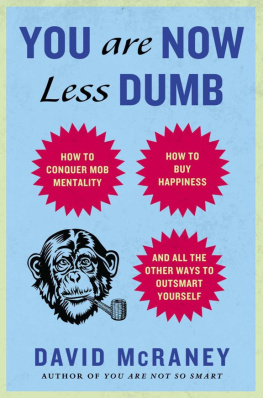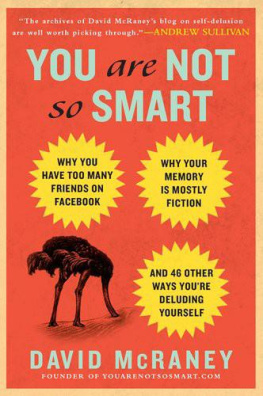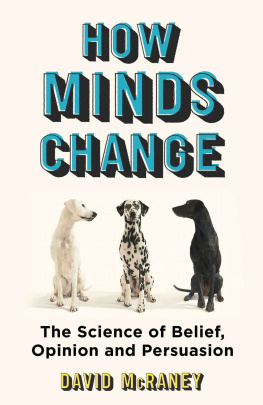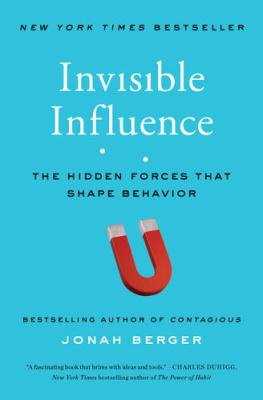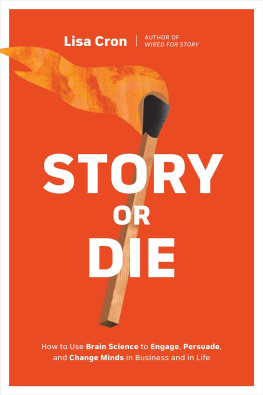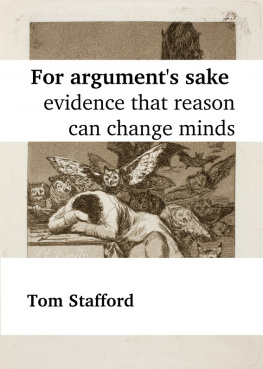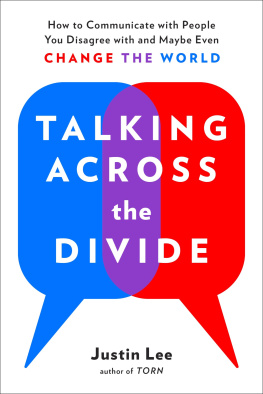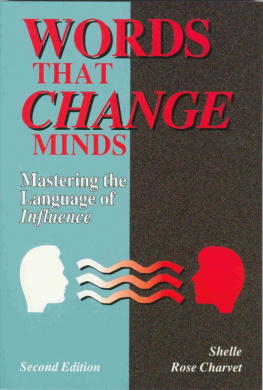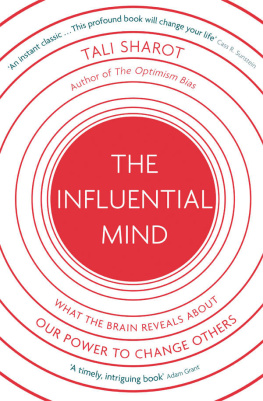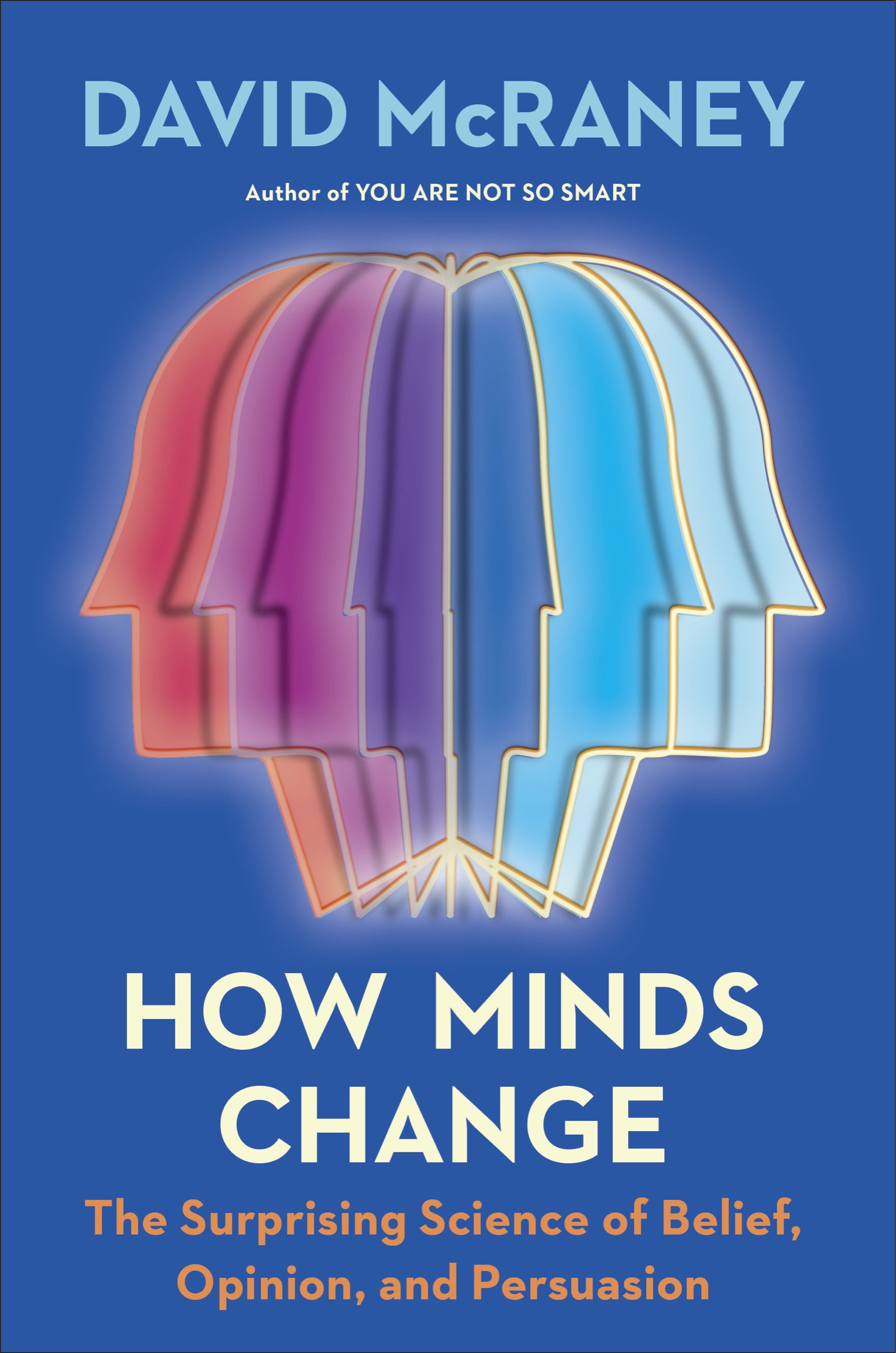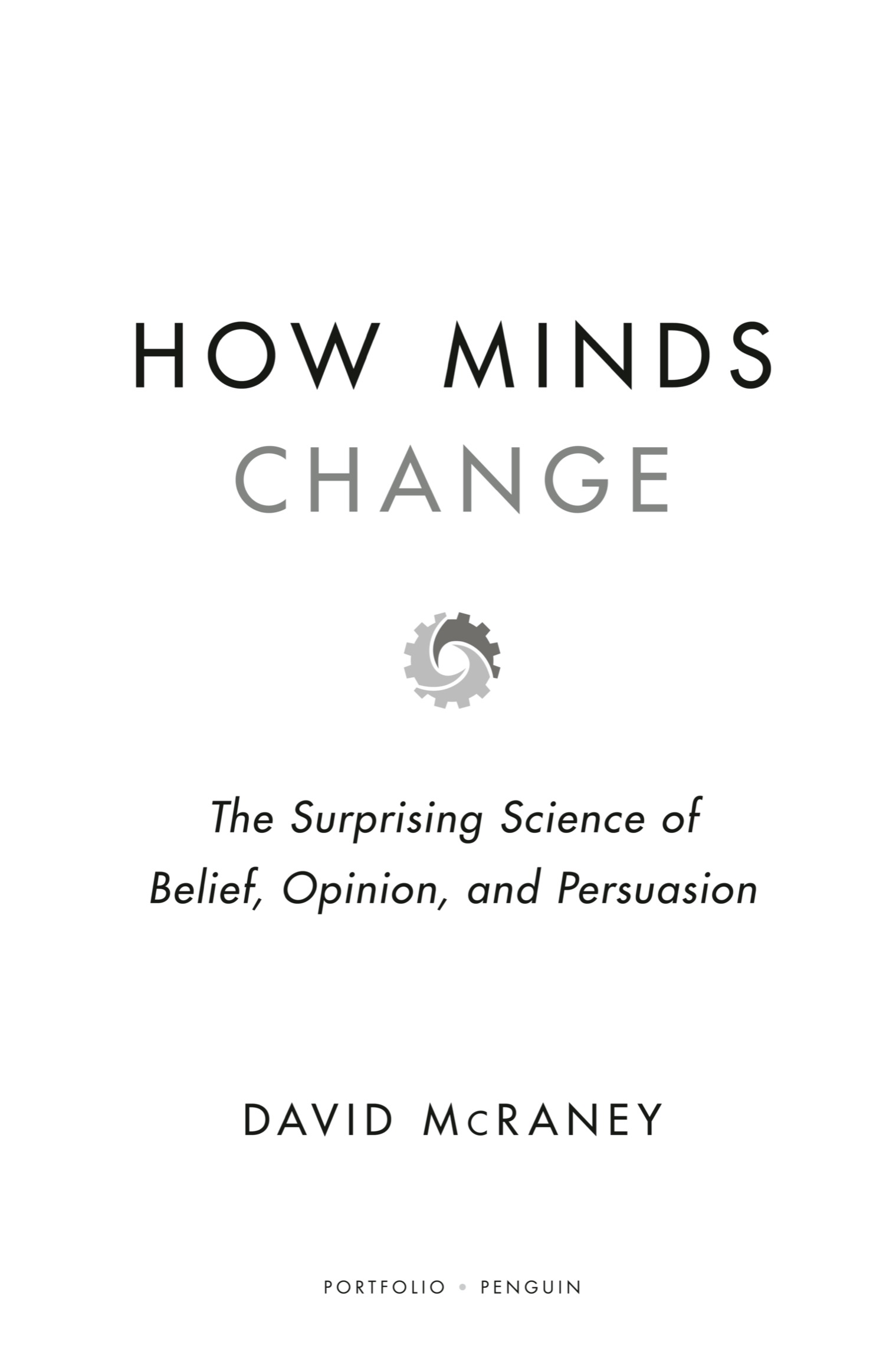PRAISE FOR HOW MINDS CHANGE
If you join David McRaney on this journeya spirited tour that ranges from activists to scientists to cultistsyoull arrive in an unexpected place. He shows us how generous conversations can replace zero-sum debates and how genuine empathy can close deep divisions. How Minds Change is the ideal book for our perilous moment.
Daniel H. Pink, #1 New York Times bestselling author of The Power of Regret, To Sell Is Human, and Drive
A timely, informative, and encouraging case for why the craziness paralyzing our society may not be permanent, and a refreshingly actionable proposal for changing ourselves, among others.
Douglas Rushkoff, author of Team Human and host of the Team Human podcast
This book is a fascinating journey through the neuroscience and psychology of how we form and update our opinions. How Minds Change is the book our society desperately needs right now. David McRaney shows us how to connect, consider, and see the potential for change in others and ourselves.
Scott Barry Kaufman, founder of the Center for the Science of Human Potential and author of Transcend
Read this book cover to coverit will change how you feel about tackling one of the most difficult relationship challenges: Changing the minds of the people we care about, without damaging the relationship itself.
Tessa West, psychology professor at NYU and author of Jerks at Work
One of the most powerful traits of humanity is our capacity to not only update our own beliefs, but also change the minds of others. David McRaney provides a tour de force on how we can persuade others without relying on coercion.
Jay Van Bavel, director of the NYU Social Identity and Morality Lab and author of The Power of Us
That very rare thingan astonishingly interesting book on a vitally important topic.
Rory Sutherland, vice chairman at Ogilvy UK and author of Alchemy: The Surprising Power of Ideas That Dont Make Sense
If you didnt like Dave McRaneys writing before, not only will this book change your mind, itll explain why that happens.
Dean Burnett, bestselling author of Idiot Brain
In an era where people feel separated by polarization and tribalism, David goes beyond simple academic concepts and provides concrete strategies to create meaningful conversations that can shift perspectives and connect people.
Jon Levy, bestselling author of Youre Invited
David McRaney, more than just about anybody, has devoted his life to exploring the surprising tricks that our minds play on us. He is a master of using fascinating stories to teach us important principles of psychology.
Spencer Greenberg, founder and CEO of Spark Wave
David McRaney is one of our finest science communicators, and How Minds Change is his greatest achievement yet. Brilliantly smart, continually entertaining, and utterly timely, it will change the way you see the worldand help you change others.
Will Storr, journalist and author of The Status Game
This is a must-read manual for anyone interested in the seemingly impossible task of changing peoples minds. Discover the science behind how we form beliefs, attitudes, and values, and the surprisingly simple way our views can shift.
Logan Ury, author of How to Not Die Alone
A combination of compelling overview and practical strategy... Convincing advice regarding a timely issue.
Kirkus Reviews
McRaney makes a convincing case... and backs it up with what science has to say about replac[ing] old ignorance with new wisdom. The result is an eye-opening survey filled with heart.
Publishers Weekly
I loved How Minds Changea book thats crammed with amazing stories and eye-opening reporting. McRaney is a gifted science writer.
Clive Thompson, author of Coders: The Making of a New Tribe and the Remaking of the World

PORTFOLIO / PENGUIN
An imprint of Penguin Random House LLC
penguinrandomhouse.com

Copyright 2022 by David McRaney
Penguin Random House supports copyright. Copyright fuels creativity, encourages diverse voices, promotes free speech, and creates a vibrant culture. Thank you for buying an authorized edition of this book and for complying with copyright laws by not reproducing, scanning, or distributing any part of it in any form without permission. You are supporting writers and allowing Penguin Random House to continue to publish books for every reader.
Image credits: chart on courtesy of Peter J. Richerson.
Library of Congress Cataloging-in-Publication Data
Names: McRaney, David, author.
Title: How minds change : the surprising science of belief, opinion, and persuasion / David McRaney.
Description: New York, NY : Portfolio/Penguin, [2022] | Includes bibliographical references and index.
Identifiers: LCCN 2022002722 (print) | LCCN 2022002723 (ebook) | ISBN 9780593190296 (hardcover) | ISBN 9780593190302 (ebook)
Subjects: LCSH: Belief and doubt. | Attitude change. | Judgment. | Public opinion.
Classification: LCC BF773 .M37 2022 (print) | LCC BF773 (ebook) | DDC 153.4dc23/eng/20220302
LC record available at https://lccn.loc.gov/2022002722
LC ebook record available at https://lccn.loc.gov/2022002723
Jacket design: Jennifer Heuer
Book design by Fine Design, adapted for ebook by Cora Wigen
6.0
IN MEMORY OF BLAKE PARKER
Thank you for giving an only child a brother, always leaving me with new stories to tell, and teaching me how to play hooky with the universe.
CONTENTS
INTRODUCTION
We are about to go on a journey together to understand how minds change. By the end of this journey, you will not only be able to use what we learn to change the minds of others, youll also change your own, I hope, because thats what happened to me, in more ways than one.
After writing two books about cognitive biases and logical fallacies, and then spending several years hosting a podcast about those topics, I had settled into a long and comfy pessimism that you may currently share. Onstage, behind a microphone, in articles, I often said there was no point in trying to change peoples minds about topics like politics, superstitions, or conspiracy theoriesand especially not a combination of the three.
After all, when was the last time you tried to change someones mind? How did it go? Thanks to the internet, we have more access to people on the other side of the issues we care about than ever before. So the odds are pretty good youve recently been in an argument with someone who saw things differently, and I bet they didnt change their mind when you presented them with what, to you, seemed like clear evidence of their wrongness. They likely left that argument not only angry, but more convinced than ever they were right and you were wrong.
Growing up in Mississippi, like many in my generation, these kinds of arguments were part of our daily lives long before the internet introduced us to the wider world of disagreement. The people in movies and television shows seemed to routinely disagree with the adults who told us the South would rise again, homosexuality was a sin, and evolution was just a theory. Our families seemed stuck in another era. Whether the issue was a scientific fact, a social norm, or a political stance, the things that seemed obviously true to my friends, the ideas reaching us from far away, created a friction in our home lives and on the holidays that most of us learned to avoid. There was no point in trying to change some peoples minds.

